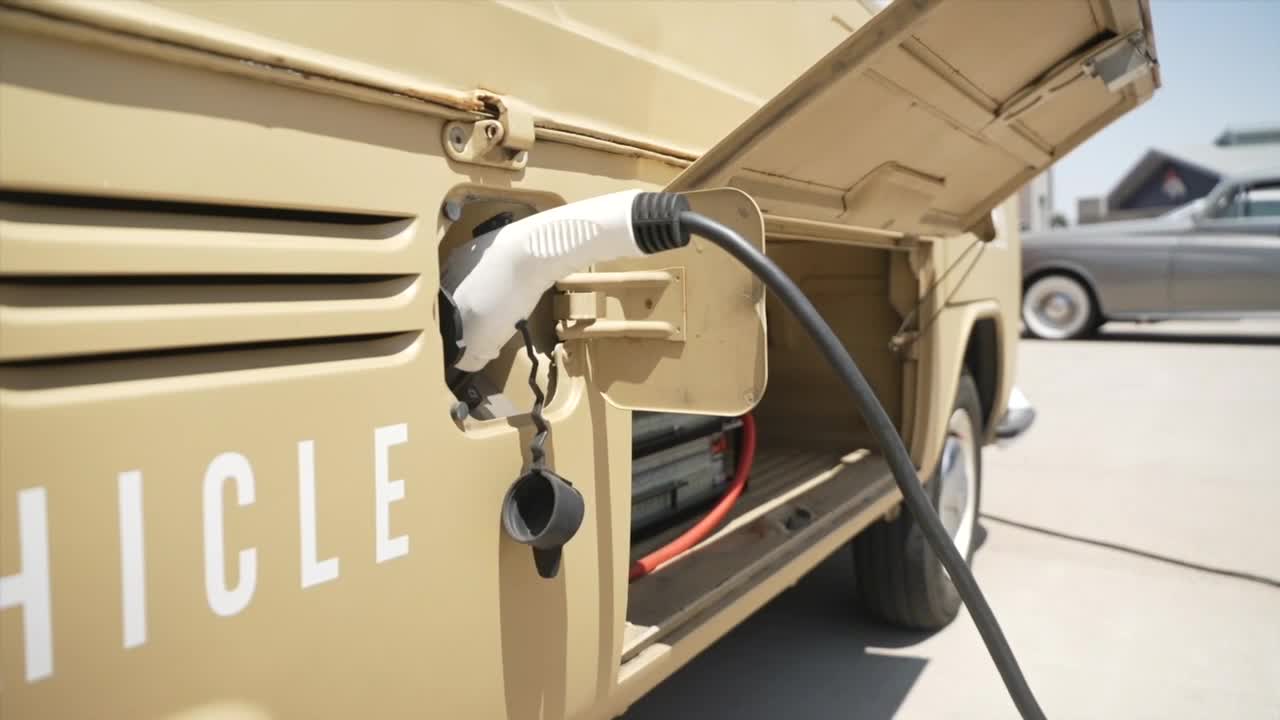CENTENNIAL, Colo. — In a world increasingly focused on sustainability, Classic EV Conversions in Centennial is merging nostalgia with modern technology. Transforming classic cars into all-electric vehicles, the company offers car lovers a chance to keep their beloved vintage rides on the road while reducing their carbon footprint.
The inspiration for the business came with Nicholas Bradley drove a 60s Volkswagen Beetle converted by his uncle, Tim Bradley, in 2019.
“Being a big gear head, you're like, ‘electric, why would you do such a thing?’” Nicholas said. “Then I drove it. And I've never driven a faster bug than that, and it instantly just sold me.”

“I'd get on I-25 and it was downright dangerous, right?” Bradley said. “Cars were screaming by at 80 miles an hour, and you're in a Volkswagen that has trouble getting up to 45 in under 15 seconds. Once we converted it to electric, I was as fast as everything else out there, and it was a significant change and a great difference.”
After realizing the potential of electric cars, the duo decided to go into business together, converting classics into modern, road-worthy vehicles.
“When you own an old car, you might not drive it for a month, and you walk out there and there's a big oil slick under it that wasn't there just the day before,” Bradley said. “When you have an electric it’s kind of like your refrigerator. It just always runs. You go out and get in your electric vehicle that you’ve converted, and it’ll start for you every time.”
Classic EV Conversions tackles two types of conversions: A standard electric conversion, which pairs an electric motor with a manual transmission, and a full Tesla swap, which requires an extensive redesign of the vehicle to accommodate Tesla components. For that process, they tear down the car completely, strip everything.
“For something like that, we tear the car down completely, strip everything out of it, and start redesigning the bare bones of the car,” Nicholas said. “We accommodate the Tesla motor, batteries, and everything else, and keep it safe, efficient and reliable.”

The shop often utilizes recycled Tesla parts, contributing to a greener environment by reusing electric parts while also removing polluting gas engines from the road.
Their work isn’t cheap. The standard conversion starts at $60,000, and more complicated builds cost more than that. Most conversions take between three and six months to complete, but each car presents a unique problem-solving opportunity that the pair loves to challenge themselves with.
“It's a giant game of Tetris, of just trying to fit it in there in the best, most efficient way, and it's a blast,” Nicholas said. “The cool part is being able to build something new. That’s what I really like about the EV’s. I get to do things that haven’t been done before, and it’s just a really cool experience.”






